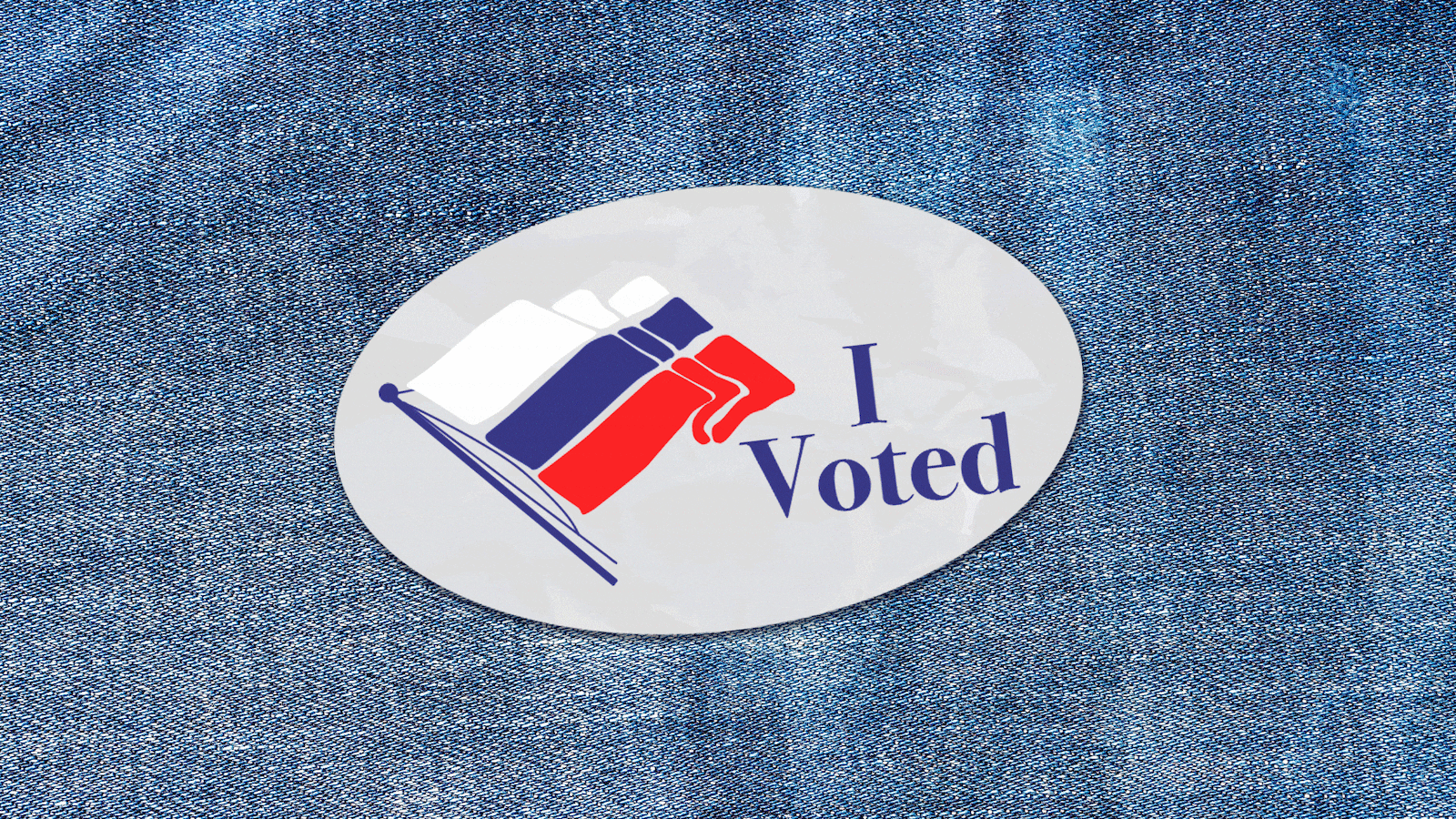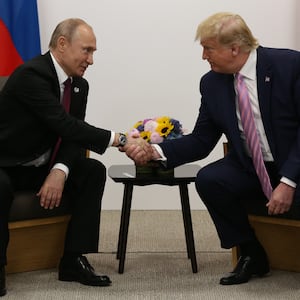Russia’s economy is struggling under the weight of Western sanctions and the situation is expected to get even worse. Instead of halting the bloody invasion of Ukraine to ease the burden of sanctions, the Kremlin is plotting to undermine Western democracies and fuel separatist movements all over the world. Its top propagandists are pondering how to “elect” Kremlin-friendly politicians abroad, causing such internal turmoil in other countries that sanctions against Russia would become a luxury the West can no longer afford.
While the Kremlin’s disinformation apparatus is facing unprecedented resistance in the West, head of RT Margarita Simonyan admitted that her outlet’s operations in the West have not ceased—despite being blocked—but continue on a covert basis. Appearing on a state TV program The Evening With Vladimir Solovyov last week, Simonyan explained: “When they [Western governments] conducted carpet bombing against us and destroyed everything, denying us any access to disseminating information, we came to our senses and started to penetrate their defenses using partisan trails: under other names, with different people, in new ways. I won’t disclose the rest here.”
RT’s undercover endeavors are not motivated by the need to share information, but rather to further the Kremlin’s agenda by stirring up dissent in Western countries. RT’s guerrilla information warfare is enhanced by the voices Russian state media openly amplifies, such as Prime Minister of Hungary Viktor Orbán, former U.S. President Donald J. Trump and Fox News host Tucker Carlson. Their actions and opinions are cherished in Moscow not solely for their contributions to spreading the misleading narratives championed by the Putin regime, but for the harm they cause to Western unity and strength.
Russian state television channels repeatedly aired a series of clips from Orbán’s recent statements where he argued there would be no war in Ukraine if Trump and Merkel had remained in power in the U.S. and Germany, respectively. Russian experts and pundits agreed with Orbán—not in the sense that Putin would not have invaded the neighboring nation, but in their belief that Trump and Merkel could be convinced to keep entertaining the Kremlin’s narratives about the invasion—and without decisive Western help Ukraine would have been quickly overpowered.
Top Kremlin propagandists often express a sense of kinship with Tucker Carlson, but none seem to be as enamored with the host of Fox News as Russian state TV host Vladimir Solovyov, who holds a special place within the Russian state’s propaganda apparatus. In 2014, Russian President Vladimir Putin awarded Solovyov the Order of Service to the Fatherland, and in July 2022, he received the Order of Merit for the Fatherland, IV degree.
During the latest broadcast of his show, Sunday Evening With Vladimir Solovyov, the host baselessly claimed that President Volodymyr Zelensky might send assassins to hunt down Carlson for his pro-Russian, anti-Ukrainian sentiments. Solovyov directly aligned himself with the Fox News host and theatrically lamented, “I’m starting to worry about him. I fear that Zelensky’s jackals will hunt him like me. I hope Zelensky doesn’t send his jackals to hunt down Tucker Carlson. This international terrorist—who is somehow heading a Banderite nation by the name of Ukraine—is capable of sending his assassins all over the world.”
Solovyov proceeded to introduce clips from recent speeches by Trump and Texas Senator Ted Cruz, where both of them mocked the LGBTQ stance on sexuality and gender identity. Referring to Trump and Cruz, Solovyov gushed: “Simply put, those are our guys.”
He predicted, “Things will get interesting this fall… There are obviously shared values and common understanding between Trump, Orbán, and Putin—but not between Trump and Zelensky.”
Henry Sardaryan, Deputy Director of the International Institute of Administration at MGIMO-University under the Russian Ministry of Foreign Affairs, complained that the Kremlin didn’t fully utilize plentiful opportunities for global election interference in countries such as Italy. Sardaryan explained: “If we had worked there for an extended period with opposition, mainstream media, public opinion leaders, social networks—right now is the opportune moment when we could have pushed through our candidate. Right now, the political circumstances in the country are ideal for that: 54 percent of the Italian population say, ‘Please split up Ukraine. Let it stop existing. Do anything at all, just to stop confrontation with Russia.’ And yet, there is not a single political leader to articulate these arguments.”
He urged the Kremlin to identify and attack the vulnerabilities in the countries willing to confront Russia: “Instead of them sending resources to counteract us, let them spend those resources on their own problems.”
In the United States, top Kremlin propagandists see an opportunity to relate to the Republicans by using the façade of religion, even though Russia’s war of aggression and conquest is by no means a religious crusade. State TV propagandists have been using the pretense of fighting “a holy war” against “Satanism” to promote the war to the domestic population, potential recruits, and religious elements of foreign audiences. They seem to believe that the same strategy would pay off with the Republicans.
Andrey Sidorov, deputy dean of world politics at Moscow State University, explained why he considered Trump’s presidency to have been particularly useful to Russia: “From my point of view, Trump was engaged in a very positive endeavor: He was destroying the leadership of the United States in the world. He questioned the very structure of global relationships built by his predecessors, along with their partners and allies… He wanted to turn those into commercial relationships and Europe didn’t like it at all.”
Solovyov readily chimed in: “[Trump] said, “I don’t need NATO, I won’t rush to your defense if you don’t pay enough.” He predicted there would soon be a civil war in the U.S., but Sidorov disagreed: “I’m not sure that there exists a modern version of John Brown in today’s United States that could initiate a civil war. People who could have done something stepped out on Jan. 6… Turns out, there aren’t that many of them. Those people who kept talking about ‘stolen election’ did practically nothing about it.”
Solovyov enthusiastically predicted that if Trump was to return to the Oval Office, the predominantly blue states would be in an uproar, vehemently rejecting his potential presidency: “Bring on Trump! California will go nuts. New York will go crazy. San Francisco is crazy already. It will be too cool, they’ll all start to fight among themselves.” While Sidorov argued that Trump would summon the National Guard to quash any potential unrest, Solovyov relished the idea of internal turmoil in America. He added, “We will support the losing side.”
Tempering Solovyov’s expectations, Sidorov argued: “First, Trump and the Republican party need to win in these elections [midterms]. They can take one chamber of Congress, but the other one isn’t certain.” Solovyov wondered: “Are you suggesting we help them?” Sidorov replied: “If we could. If only we could, we should provide our assistance.” Solovyov confidently asserted: “We can do it.”
Sidorov opined that “a total internal breakdown,” in the United States was needed to overcome an otherwise incredibly strong system of government. Solovyov expressed hope that Trump was exactly the kind of person who could deliver such a shock to the nation: “When a person rolls in like an elephant in a china shop—like Trump—he tears down and aggravates the situation… He consolidates the opponents and supporters, prompting a confrontation.”
Military expert Alexander Artamonov concluded: “The worse, the better. It’s beneficial for us… We’ll put an end to the existence of the old world and start a new era, a new phase—headed by Russia, in my opinion.” Concurring, Solovyov recited a partial verse from Alexander Blok’s poem, “The Twelve,” ominously predicting: “We’ll set the world on fire.”






